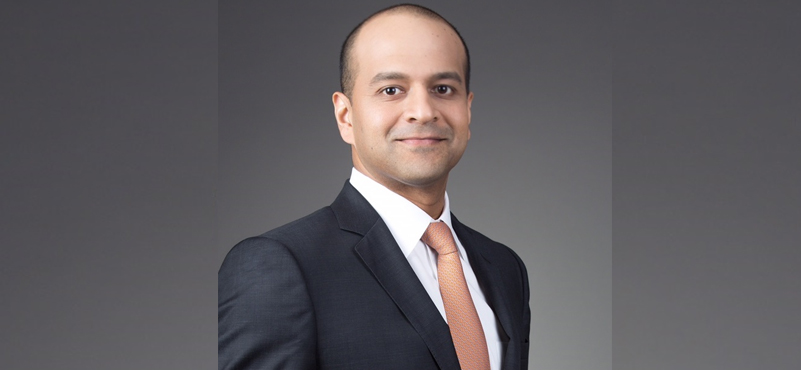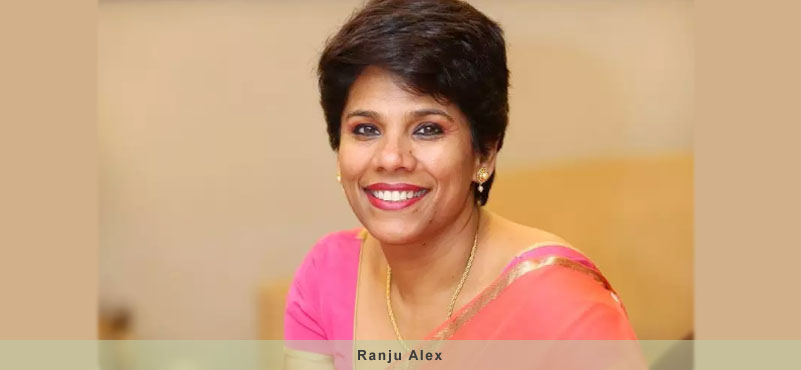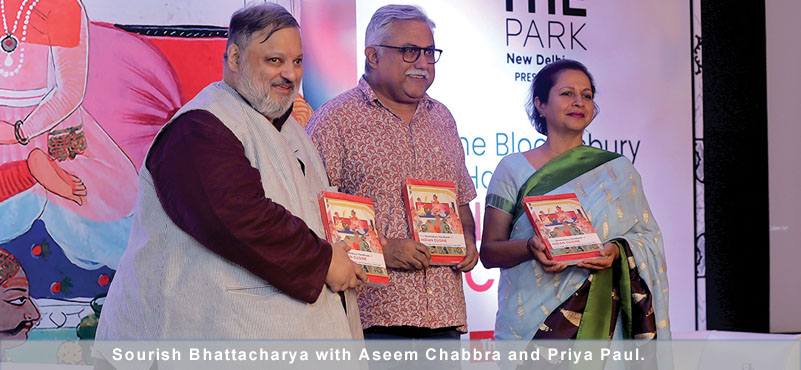In Times Like These, the winner is who reads the writing on the wall quicker and clearer. Conserve cash, cut on non-essentials, plan newer revenue streams and ensure comfort and confidence of your customers. TourismFirst in an exclusive interview, engages with Neeraj Govil, Senior VP, Marriott International, for India
Much of the scene has now become familiar territory, but there is always room to capture the highlights again, for greater understanding. Where and how did this begin and where are we at this stage in the COVID devastated travel and tourism industry?
Perhaps a good time to start would be towards the end of last year. We were seeing recovery of sorts, but then in February the corona began to surface, and you know the rest of the story. I see month of May being spent in trial and error situation as we begin to experiment with easing of restrictions from the lockdown. I expect May to be about the same as April. Only in June, as we witness more relaxation, we can begin to see the potential. We can expect domestic flights to begin with low load factors. We could see state borders opening, we can expect some recovery around our business. Once we begin the recovery, I am expecting the tail to be somewhat shorter than most predict. After September, we can expect to be in business, though nowhere near last year’s numbers. If there is no second wave, growth will be here to stay, I am confident.
Going back over the first impact of the COVID, we first saw the dangers surface by end February, beginning March and most of us started to plan, looking ahead. Occupancies had plummeted by mid-March, we were witnessing large scale cancellations. At that time, we were just under 30%, partly because the first week had been good. April has seen a single digit occupancy across our portfolio, and May looks the same. But even more impactful has been the fall in overall revenues, even when rooms were not being sold; in this case scenario, nothing was being sold. 90% fall in revenue!
How did you choose which hotel to shut, and which to remain open? It must have been sudden war on every front?
Some were mandated by government decisions. Others, we talked with owners and reached this conclusion. Some were required by local agencies to be used in the war on COVID. As of now, we have downsized operations, a few are partially open. Out of our 125 operational hotels, over 40 of them are closed, as we speak. When do we open them? We will keep reviewing the position, follow local guidelines, and keeping in mind the parameters set by health authorities and international agencies such as WHO. Meanwhile, some of our hotels are providing quarantine facilities, others are housing medical and other critical staff, as in Bhopal, Lucknow and in Mumbai; working with local communities in numerous locations, with the owning companies, keeping an ongoing engagement to ensure we are doing whatever we can.
And when we do open, adherence to maximum care and protection will be uppermost on our mind. If any customer shows any signs of infection, strict protocols will come into play. Quarantine facilities for such customers will co-exist side by side, till concerned authorities take over.
How is the Marriott portfolio panning out in other key markets – China, Europe and in the US? Is there any lesson for us from the bigger picture globally? Or, are we just different?
I cannot say anything authoritatively on the global situation. My sense is that we are in India at different time of the life cycle of this pandemonium. Some countries started their story with it earlier, have kind of peaked, and settling down; some have started clawing their way back. Like, China appears to be coming back, some of our hotels have re-opened, cautiously though. The same is true in South Korea, we remain cautiously optimistic on Australia. In India, we are a few weeks late in the cycle. We have done exceedingly well, being the first to close our borders, now with 40 days of a clampdown in effect. In the US and in Europe, some of our hotels are open, but with low occupancies – these are countries currently in the eye of the storm.
We are told there is going to huge distress in the coming months, industry-wide, as many properties may find it difficult to manage cash. Is there some concern within your portfolio? How are typically owners finding solutions? And how is Marriott hand holding them?
The real issue is cash, as there is no revenue stream. We are taking every action that we can to conserve cash flow. We have cut down on fixed costs, wherever there was any small possibility, maintain liquidity. Many of these are temporary measures, where we have reworked contracts with suppliers, associates, with our owning companies. As we focus on the new norms, some extensive labour intensive jobs may be under pressure. What customers will expect and what will it take for us to meet these expectations. Within our operations, we are looking at staggering shifts, ensuring there is adequate distancing in locker rooms, putting strong recover plans for each property in specific terms. How can we bring relief within the existing protocols, provide savings for owners, and make the intensity of the ‘bad’ less for all concerned?
What happens to your strong pipeline? How many of your projects do you see getting late, and by how much? Any of them going for a second thought? How will COVID change the portfolios of the major companies in the business?
The impact on our pipeline will be there for sure. Before the COVID set in, we had 14 properties set to open in the rest of the current calendar year. Some will get pushed. Partly also, because of construction delays. This is not an environment where we need to rush into opening new properties. But, also do note that at the same time, new discussions are also taking place. We expect many un-branded hotels to reassess their positions and want to fly a flag. Overall, I can confidently say the existing pipeline is very much on track. Even then, current market conditions could witness some upheavals in the industry, per se.
How is the leisure marketing going to grow? How do you see business to your properties such as those in Mussoorie, Jaisalmer and in Goa? Do you see price being an important consideration, and would you go the way of promotions and discounts to lure or provide stimulus in the market?
We expect leisure market to pick up strongly. International travel will remain weak for some time, and Indian outbound will offer new opportunities for our domestic market. Especially, I feel that market that is driven by family and private vehicles. No, we will not be driven by discounts. Important that we remain focused on the guest experience and not be driven by rates. The new norms will require greater levels of hygiene and comfort and confidence among guests will be more important than the price. Our program “We Care” will be typical of our approach in the market.
Stay Secure with Marriott is our tagline. Customers will show preference for a hotel that ensures their safety. Most leisure travel is also with family, and customers are not going to risk the experience going wrong. At Marriott, they can rely upon the experience and satisfaction quotient when staying with us. Going forward, customers will demand more flexibility with dates of travel. We will be less rigid on dates and our cancellation policies will be geared differently. We have already advanced the redemption dates, wherever required, on our loyalty program, the extremely successful BONVOY program. Where points are expiring, the window is being extended.
You have mentioned somewhere that typically hotels will need to trim fat, and go the way as much of Europe does, with relatively less frills. How do you see the most immediate fallout of this COVID stress in Indian hoteliering? Is there any course correction ahead for Marriott Hotels, especially in India, as a fall-out of the current crisis?
This is a time for pressing the reset button in the hospitality business. Every group is thinking afresh. We are re-calibrating, localizing supply chains, which will mean change in the way we operate. I see greater use of technology, in real terms, with many more functions getting digitized. I think every fixed cost is being reviewed afresh. Each hotel will have its own review, geared towards greater efficiency, where operations become a lot lighter. This could mean redeployment of staff, outsourcing of some services, reduction or consolidation of other services. Overall, this will make us operate more smartly. In times like these, we will also look at new revenue streams. Like take out and food deliveries, is one big area. Our hotels in Mumbai and Bengaluru are already doing this, with success.




































